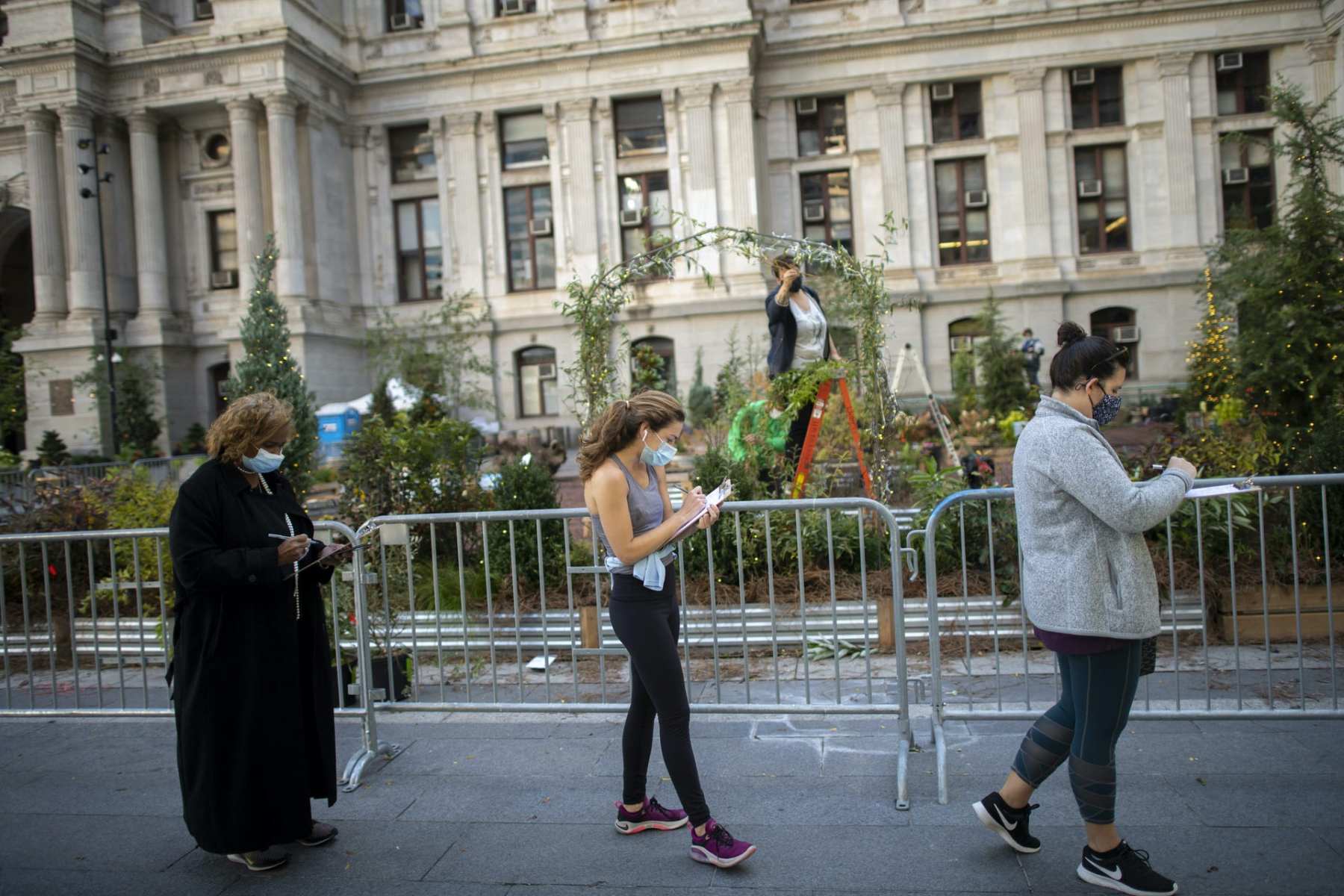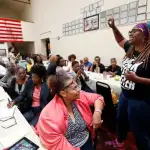We’re the only newsroom dedicated to writing about gender, politics and policy. Subscribe to our newsletter today.
More than 90 million Americans — a record number — have already voted ahead of November 3, surpassing the number of people who voted early in 2016 by more than 32 million. And more women are voting than men in key battleground states.
In Pennsylvania, for example, women accounted for 57 percent of the absentee and early voting ballots, according to data from Decision Desk HQ, which tracks election results. In Wisconsin, Ohio, Michigan, Iowa, Georgia, Maine, Minnesota and North Carolina, they accounted for 56 percent. In Texas and Florida, women make up 55 percent of early voters.
Colleen Loper, director of political strategy at Way to Win, a progressive organization dedicated to campaign funding, said women voters have basically doubled their participation in 2020 when compared to 2016.
“The numbers are insane,” Loper said. “I’ve been working in politics in Texas, Nevada, Florida, nationally and nobody has ever seen numbers like these … I think this election is a referendum and people are not willing to not speak up.”
“There’s a through-line about women being more engaged,” Loper said. “And I think how it’s affecting us as we are gaining more political power.”
The gender gap between President Donald Trump and Joe Biden has swelled to double digits in some key battleground states, favoring Biden, with suburban and rural White women voters in the spotlight. On the campaign trail, Trump has recently been making overtures to suburban women, in one instance asking, “Will you please like me? Please. Please. I saved your damn neighborhood.” This comes amid some reporting and polls that indicate White women nationally are having second thoughts about the president.
Women — who tend to outlive men — have been the majority of the electorate for decades, and have reported voting in higher numbers than men for years, according to data collected by the Center for American Women and Politics.
Amanda Brown Lierman, managing director of the women’s advocacy group Supermajority, said women have always been at the “frontline of our democracy” as poll workers, but there has been an “explosion” of women’s activism following the last presidential election. Millions participated in the 2017 Women’s March and a record number of women ran for office in 2018. (A historic number are currently running for office in this election cycle, too.) Now, the coronavirus pandemic and protests following the death of George Floyd are disproportionately impacting women.
“The despair and rage that women have when they’re facing these impossible choices about how to put food on the table, teach their children, take care of their parents, juggle child care — the day-to-day is making it really hard to be a woman in America right now,” Lierman said.
Polling shows that women voters are more likely to trust Biden on managing the public health crisis. For months, women have also taken more precautions in addressing COVID-19: They are more likely to wear protective face masks and express concern that a vaccine will be rushed to approval before it is safe and effective.
Lierman said her organization conducted research earlier this year to identify what key issues are mobilizing women voters. According to the findings, women are most concerned with ending the pandemic and providing short- and long-term economic relief; affordable access to health care; ending systemic racism; and ensuring every American has a right to vote.
The day-to-day is making it really hard to be a woman in America right now.
Amanda Brown Lierman, managing director of the women’s advocacy group Supermajority
More Democrats are voting early this election cycle, Lierman said. Trump has repeatedly spread misinformation and denounced the validity of voting by mail, a process that has been used successfully in several states for years. And at the first presidential debate, Trump told a far-right group that has endorsed violence to “stand back and stand by” and encouraged volunteers to monitor the polls for fraud on Election Day.
Women might be voting early out of fear of going to the polls, Lierman said. The Armed Conflict Location and Event Data Project has tracked more than 80 militias across the United States — the majority of which are right-wing armed groups — and in a recent report warned that these groups “pose a serious threat to the safety and security of American voters.”
Women are fired up and have been waiting for this moment, Lierman said.
“I think women are feeling the pain of what’s happening in the world around us at such a deep level that you have no choice but to make sure your voice is heard at the polls,” Lierman said. “That is something you can control.”






